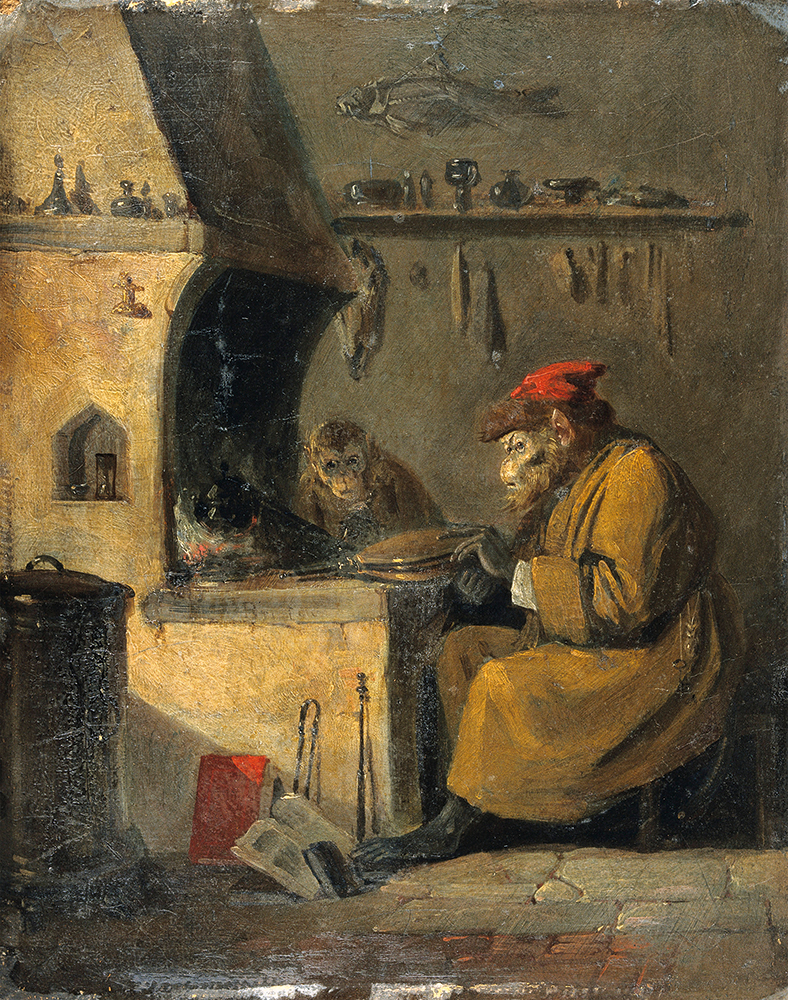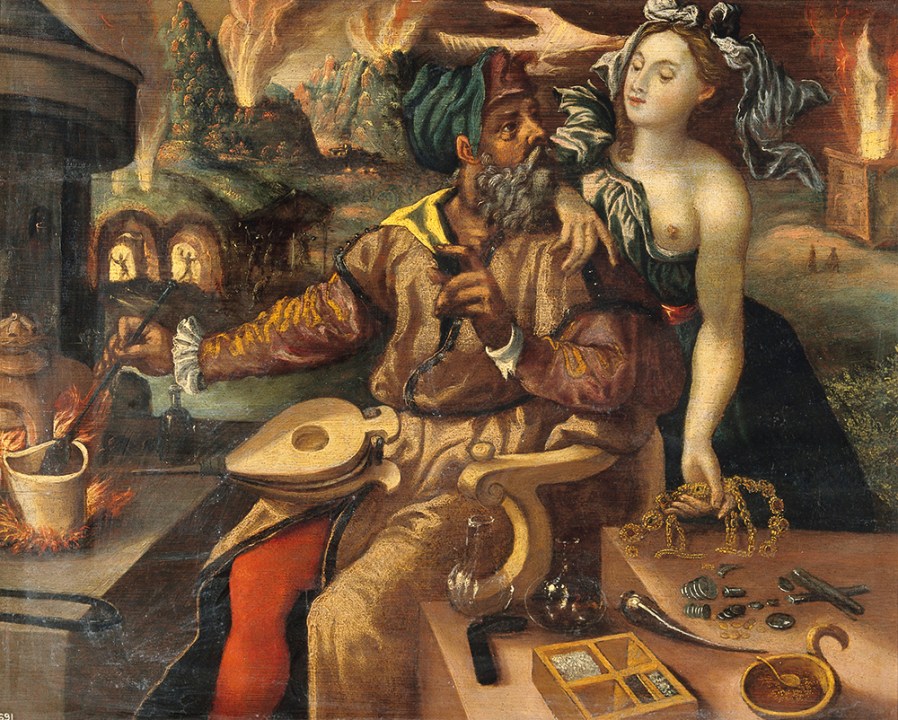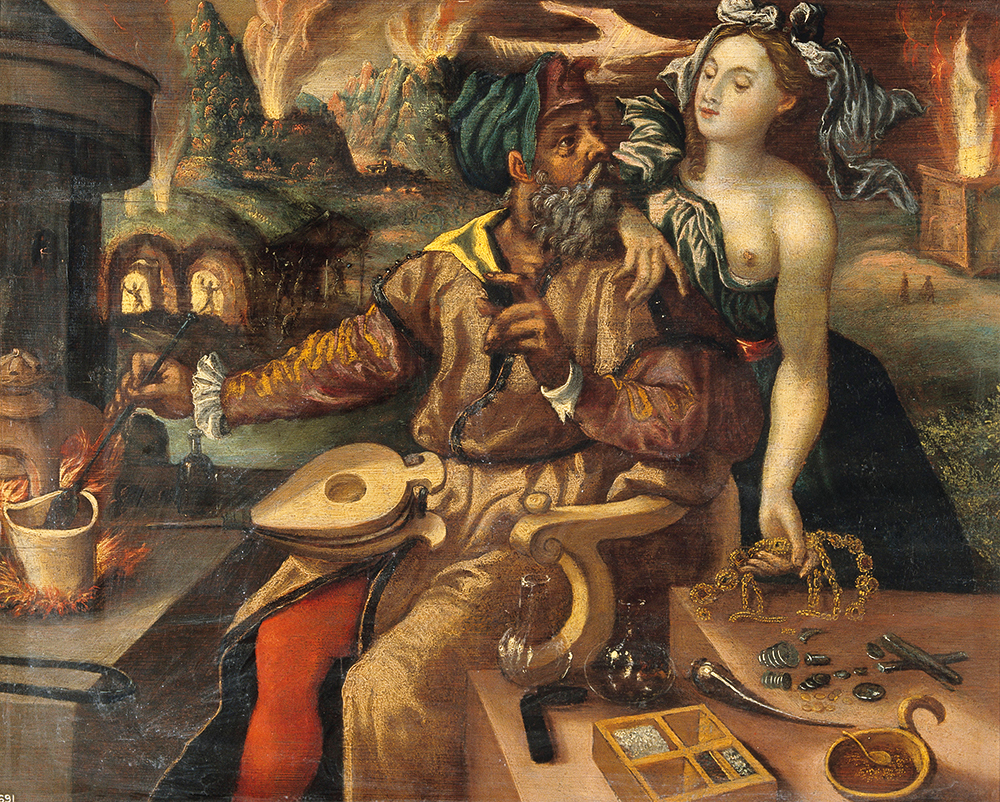
Alchemy, astrology and medicine (before the triumph of germ theory): three worthless intellectual systems which provided a good living for many into the 18th century and even beyond. Alchemy turned into chemistry; astrology was divorced by astronomy; and medicine (which might have become Pasteurism or Listerism) somehow kept its old name while abandoning all its old therapies.
There have always been people with the good sense to say that alchemists and astrologers were charlatans, and doctors were more likely to kill you than cure you, but few listened. After all, all three could claim to be ancient, respectable forms of learning. And all three were too good to be true. Who does not want wealth, foresight and good health? But each went into an irreversible decline – first astrology (at least for the sophisticated), then alchemy, and finally, in the 19th century, Galenic medicine. After alchemy came not modern chemistry but (as it is now called, in imitation of 17th-century spelling) chymistry, a halfway house, where adepts no longer hoped to make gold but did not yet understand that the elements are fixed. This was the age of phlogiston, a substance given off by materials when they burn.
Isaac Newton devoted as much time to alchemy as he did to calculating the date of the Second Coming, though the alchemy remained secret. For if gold became easy to manufacture, how could one measure and store wealth (a particular worry for a man who became Master of the Royal Mint)? Newton told off Robert Boyle, the great experimentalist, for publishing some alchemy-related chemistry, since these secrets must be kept even from fellow natural philosophers. But Boyle was a desperate case. He was the victim of an exquisite long con by people who claimed to have discovered the philosopher’s stone. And he quietly arranged for the law against multiplying gold to be repealed. Believing he was on the threshold of this greatest of all discoveries, he had no wish to end up imprisoned for devaluing the coinage.
Philip Ball’s book is a treasure: beautifully illustrated (the picture researchers and printers have done a superb job) and, as usual, the author caries his learning lightly. I would have liked more stories of con artists and frauds, but Ball insists on taking alchemy seriously as a valid (by pre-modern standards) enterprise. The sooty alchemists’ den is, he insists, the first laboratory, and alchemists have as good a claim as Galileo to being the first experimental scientists.
I would also have liked to learn more about their attempt to create (like Frankenstein) alien life: the homunculi, or little naked men whom they believed would appear in their glass flasks out of a bubbling soup of noxious ingredients. Did these strange beings ever escape from their glass prisons? Did they speak? Someone should write their history – the predecessor to the modern story of little green men. But Ball barely mentions them because they are so obviously fantastical; yet to the alchemists they were as real as gold.
Alchemists, chymists and chemists required the same equipment: furnaces, retorts and crucibles. Crucibles were generally used once and then thrown away because they could never be cleaned. For centuries, all crucibles came from two villages in Hesse where the secret to producing heat-resistant receptacles was closely guarded. Without crucibles there would have been no alchemy. But would the course of history have been altered in the slightest degree?
Alchemy differed from astrology and medicine in crucial ways. Alchemists practised in secret: they had to if they were to get rich from making gold. They often believed in spiritual illumination and mystical union with divine forces, for how else could they explain their constant failures except as moral shortcomings? And their enterprise was horrifyingly expensive, so even those who believed in the reality of transmutation were liable to fake results in order to acquire research funding.
These peculiarities ensured that alchemists were never able to put other practitioners’ claims to a fair test. Alchemy thus lacked the most basic requirement for intellectual progress in the natural sciences, and centuries went by without anything that could be called a discovery. Where astrology was always a doomed enterprise, the making of new and improved substances was a perfectly sensible undertaking. Alchemists were just very bad at it. They did not even use distillation to produce strong, potable liquors until the Renaissance – otherwise the Middle Ages would have been awash with brandy, rum and gin.
But we are not supposed to say this because science, like sex, is now meant to be a social construct, a collective fantasy, not a way of engaging with obdurate reality – and Ball certainly does not say it. Alchemy, we are told, forms a crucial part of the history of science – although truth to tell it lacks the most elementary features of a science. The great sociologist Robert Merton said that sciences had CUDOS: common ownership of ideas (or, as he put it, ‘communism’); universalism, or a rejection of personal authority and sectarian allegiance; disinterestedness; and organised scepticism. Alchemy had the opposite: secrecy, charismatic authority, crude financial incentives and, as a fundamental prerequisite, credulity.

But the peculiar result of this is that alchemists produced beautiful (if barely comprehensible) texts, often lovingly illustrated, and, even when printed, hand-coloured. It is precisely because alchemy lacked the qualities of a science – the dryness, the abstraction, the literal-mindedness – that it generated the breathtaking images that almost overflow from the pages of this book. It’s a wonderful work, even if it gives too generous an account of a futile, doomed, spurious enterprise in which only charlatans and con artists flourished – and few indeed even of those, for, as Chaucer’s canon’s yeoman laments, alchemists spent money but never made any.
The modern historians of alchemy, including Ball, do not deal in moralising stories of deception, self-deception and outright folly. The result is a history which practises its own form of anachronism, for it fails to give sufficient credit to those like Chaucer who were never taken in. By making the alchemists sensible experimentalists it has to take the edge off a play such as Ben Jonson’s The Alchemist (1610). ‘The joke,’ says Ball, ‘is not really at the expense of alchemy… but of those made gullible by greed.’ But that’s not right. If there was any prospect of alchemy being successful, the alchemist’s marks would not be fools, and we would not be laughing. The joke requires that we laugh at alchemy before we go on to mock those who are taken in by alchemists. Readers of this book will not hear that laughter, but they will enjoy many visual delights and find much food for thought.









Comments